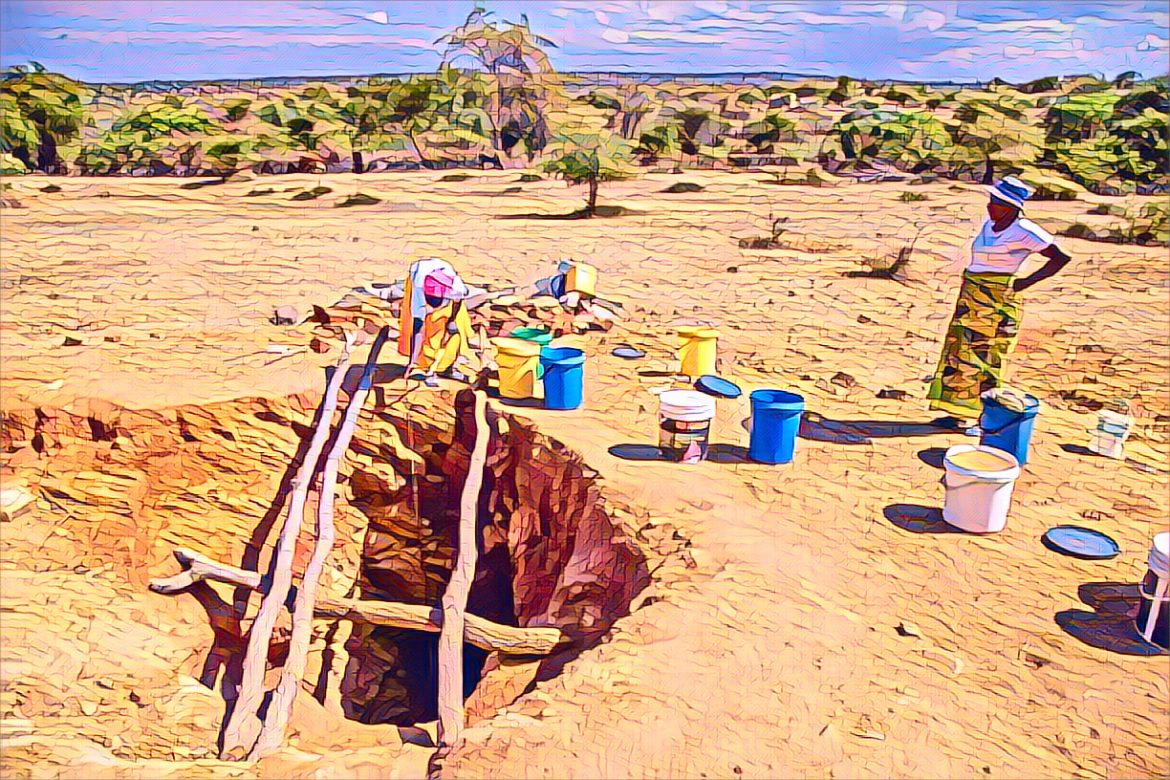Zimbabwe is facing a severe food crisis as an El Niño-induced drought devastates the nation’s agricultural output, leading to a drastic reduction in food supplies. The drought, described as one of the worst in recent years, has left millions of Zimbabweans struggling to secure enough to eat.
The Zimbabwe Meteorological Services Department reported that the current drought, driven by the El Niño weather phenomenon, has resulted in significantly below-average rainfall across the country. This has caused widespread crop failures and diminished water resources, exacerbating the already dire food security situation.
Agricultural experts warn that the impact of the drought will be felt for months to come. “The severity of this drought cannot be overstated. With crops failing and water sources drying up, rural communities are particularly vulnerable,” said Dr. Tendai Muchena, an agricultural scientist. “Many farmers have lost their entire harvest, and this will have a ripple effect on food availability and prices.”
The Zimbabwe Vulnerability Assessment Committee (ZimVAC) has issued a stark warning about the potential for a humanitarian crisis. According to ZimVAC, up to 5 million people, nearly a third of the population, are at risk of severe food insecurity. The organization has called for urgent international assistance to prevent widespread hunger.
In the rural district of Masvingo, the effects of the drought are painfully evident. Once lush fields now lie barren, and the once-reliable rivers and dams have dried up. Farmers, who rely heavily on rain-fed agriculture, have been hit hardest. “We have never seen anything like this,” said 58-year-old farmer Simon Moyo. “Our crops failed, and now we have nothing to feed our families. We are desperate.”
The Zimbabwean government has acknowledged the severity of the situation and is appealing for international aid. President Emmerson Mnangagwa has urged global partners to support Zimbabwe in its time of need. “We are facing an unprecedented drought that requires immediate intervention. We call on the international community to assist us in providing food and water to our affected citizens,” Mnangagwa said in a statement.
Humanitarian organizations are mobilizing to respond to the crisis. The United Nations World Food Programme (WFP) has already begun distributing food aid to the most affected regions. “Our priority is to ensure that the most vulnerable populations receive the assistance they need to survive,” said WFP Country Director Francesca Erdelmann. “We are scaling up our operations to reach as many people as possible, but the need is immense.”
The drought has also led to a surge in food prices, making it even more difficult for families to afford basic necessities. According to the Consumer Council of Zimbabwe, prices for staple foods such as maize meal and cooking oil have skyrocketed in recent months. This inflation is placing additional strain on households already grappling with economic hardships.
In urban areas, residents are feeling the pinch as well. Many city dwellers rely on rural relatives for food supplies, but with the drought decimating crops, these sources are drying up. “We used to get food from our family in the countryside, but now they have nothing to send,” said Harare resident Abigail Chikwana. “We are all struggling to make ends meet.”
Despite the bleak outlook, there is a glimmer of hope as the international community rallies to support Zimbabwe. The European Union and several non-governmental organizations have pledged additional aid to help mitigate the crisis. Local initiatives are also springing up, with community groups organizing food drives and support networks to assist those in need.
In conclusion, Zimbabwe is grappling with a severe drought induced by El Niño, leading to widespread crop failures and food shortages. As millions face the threat of hunger, urgent international aid and support are crucial to alleviate the crisis. While the situation remains challenging, the concerted efforts of the global community and local initiatives offer a beacon of hope for those affected.
Source: New Zimbabwe


